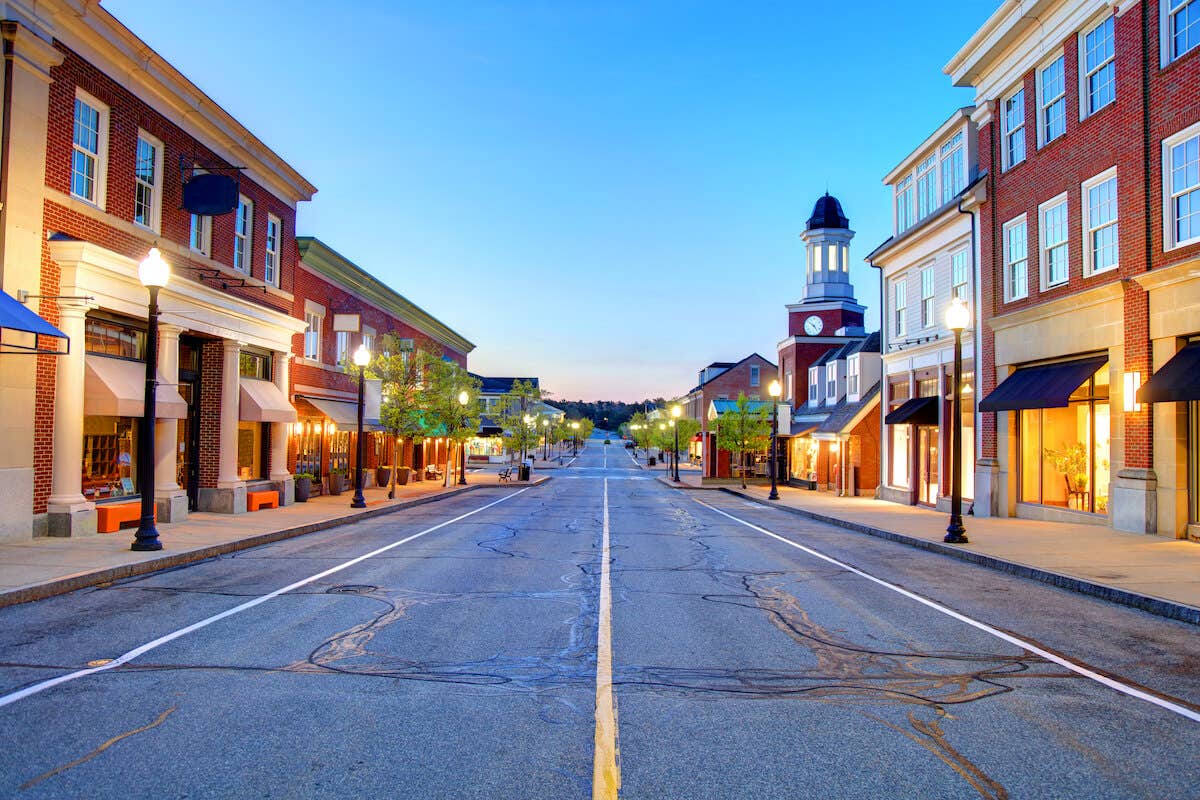Living in a city definitely has its allure. At the very least, being in the heart of an urban area gives you more options when it comes to entertainment, employment, and healthcare. But the trade-off is usually higher prices and smaller living spaces.
But lately, people are looking to get out of cities﹘particularly now that remote work has become more common. Some got as far as the suburbs, but others made it as far as an exurb.
Exurbs defined
Most simply, exurbs are locations beyond a metropolitan area and its suburbs. According to Finding Exurbia: America’s Fastest Growing Communities at the Metropolitan Fringe from the Brookings Institution, an area can be called an exurb it has:
- Approximately 20 percent of its workers commute to a nearby city.
- Low housing density.
- Population growth that exceeds that of the nearby city.
In many areas, exurbs tend to be at least somewhat rural﹘ moving to one doesn't necessarily mean you own farmland, but you may see more than one neighbor raising backyard chickens. However, exurbs can also be small towns or villages located just beyond a city’s suburbs.
Long story short? Exurbs probably won’t show up on anyone’s list of top places to live, but only because they tend to be lesser-known locations.
Exurbs vs. suburb: What’s the difference?
Exurbs and suburbs do share some characteristics. For example, both exurbs and suburbs have a percentage of residents who commute to jobs in a nearby city, plus lower housing density. Both also tend to be more spread out so residents often need to drive more.
However, suburbs are more likely than exurbs to have:
- Subdivisions developed by a single real estate company. These often consist of tract homes where buyers can choose from several model homes with slight variations.
- More complex road systems. Suburban roads typically include cul-de-sacs that give way to larger residential streets that ultimately connect to even larger roads and highways.
- Well-known stores and restaurants. Many suburbs are known for being home to malls with plenty of parking, major box big stores, and franchised restaurants.
- Public transportation. Suburbs often have buses and commuter trains, particularly when they are closer to the city they support.
Exurbs, on the other hand, are farther away from cities, past the suburbs, which means they’re less likely to have many of the amenities found in the city and suburbs. For example, some exurbs may have a central business district, but the stores are usually not national chains. And not only is public transportation rare, but exurbs are usually not very walkable. You’re also less likely to see subdivisions with homes that look alike in exurbs.
Key benefits of exurbs
Because they are even farther away from major cities, exurbs are often more affordable than suburbs. This means that homeowners can get more houses for their money. Lot sizes are also bigger, and the additional space provides greater privacy than what you find in the city.
Being away from the city and having more space between homes also reduces noise levels. The only sounds you may hear are birds chirping or a deer rustling in the bushes along the edge of your property.
Living in an exurb can also mean less pollution. While people definitely have to drive more, there are few cars, and that reduces the amount of emissions you breathe. And with fewer people, there is almost always less trash.
Are the exurbs right for you?
While a lower cost of living and a quieter lifestyle sounds great, the exurbs aren’t for everyone. The first question to answer is whether your job will allow you to telecommute at least some of the time. The willingness of some tech giants to allow remote work is one reason the exurbs of San Francisco Bay, areas like Brentwood and Petaluma, have grown recently.
You’ll also need to be comfortable being farther away from some basic necessities. Grocery stores and dry cleaners may be a 30-minute drive rather than just down the block. Moreover, you will likely have fewer retailers to pick from. The same may be true of cultural activities. Dinner and a show might take additional planning if you have to drive over an hour to attend.
Ultimately, you need to weigh what you’re willing to give up against what the exurbs have to offer. Is a bigger home and more privacy worth a longer commute or fewer nights out on the town? You’re the only one who can answer that question.


